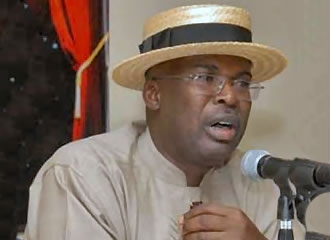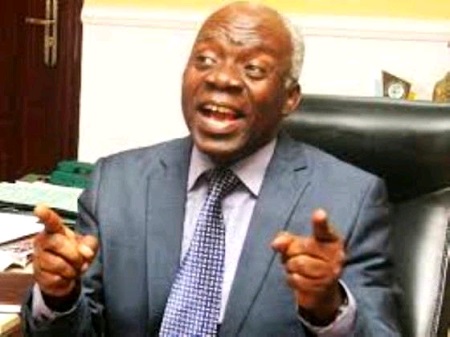One of the biggest tasks currently before the Minister of Aviation and Aerospace Development, Festus Keyamo, is to ensure that more airlines do not suspend their operations from the Nigerian market.
Experts said any exit could be catastrophic to the entire aviation sector and the economy in general.
Following his return from the Dubai Airshow in November, Keyamo revealed that Emirates Airline was poised to resume flight operations in Nigeria, having suspended its operations in the country twice in 2022.
Emirates had previously suspended flights in September 2022 but resumed after the Central Bank of Nigeria released $265m in outstanding ticket sales.
And barely two months later, the airline halted operations in the country, citing unsuccessful negotiations with Nigerian authorities over fund repatriation.
Etihad Airways also suspended flights to Nigeria during the same period.
Keyamo wrote on Twitter, “On the sidelines of the Dubai Airshow in Dubai last week (November 2023), I met with the top echelon of Emirates Airline and we continued very warm and fruitful discussions towards the resumption of flights from Dubai to Nigeria, an effort that was championed by President Bola Ahmed Tinubu.
“We are presently working on the small details and the airline will soon announce the exact date of their resumption of the flights.”
The Nigerian government holds the highest amount of airline-trapped funds in the world, with over 27 foreign carriers operating in the country, according to the International Air Transport Association.
Data obtained from IATA showed that the funds had risen to about $792m at the end of last year.
Africa’s largest economy has been struggling with dollar shortages, which has made it difficult for foreign airlines that sold tickets in the local currency to repatriate their funds from the country.
The country’s foreign currency shortages have been worsened by declining oil production, which accounts for more than 90 per cent of dollar inflows.
Nigeria’s foreign reserves have maintained a steady decline since 2021, currently standing at 33.25bn as of January 18, according to the CBN.
The Chief Executive Officer of Centurion Aviation Security and Safety Consult, Captain John Ojikutu, said it was challenging for airlines to continue to pay in dollars while they collect naira from travellers.
He told newsmen, “We owe Emirates Airline and many others from Europe and the Middle East. These airlines collect naira on ticket sales but pay dollars for every service charge like passenger service charge, aircraft landing, and parking, ground handling services, fuel sales, etc.”
Ojukutu, who was also the former commandant of the Murtala Muhammed International Airport, Lagos estimated that Nigeria generates at least $2.5bn annually from all the service charges on passengers and air traffic figures.
He said, “The questions to ask are these: Where is the money, and who authorises their spending without the authority of the responsible authority?
“In 2007, ex-Nigerian President, Olusegun Obasanjo, at a public hearing in Aso Rock, directed that the dollar earnings in aviation should be domiciled in the CBN and the naira values be collected by the depositors. Since that time, how much has been deposited in the CBN and who has been spending the money?”
According to the National Bureau of Statistic, the aviation sector contributed N22.6bn to the country’s Gross Domestic Product in the third quarter of 2023, a 109.26 per cent rise from N10.8bn in the corresponding period of the previous year.
Beyond the pronouncements made by the minister on social media, the precise time frame for the resumption of operations by the airline is still unclear.
The minister’s spokesman, Tunde Moshood, told The PUNCH, “I can assure you that everything needed to be done has been done.”
He emphasised that the assurance was not unilateral from Nigeria but stemmed from a mutual agreement between the two countries.
Fear of more exit
Experts said if the crisis is not resolved early, some airlines may follow the steps of Etihad and Emirates Airlines in withdrawing their service from Nigeria.
They noted the government must find a solution to the forex crisis and prevent the loss of foreign airlines in the country.
Reacting to speculations that more airlines may exit the Nigerian market, Ojukutu told newsmen, “We are moving down fast into the valley of death of the industry if these airlines carry out their threats of withdrawing their commercial operations from Nigeria.”
According to Ojukutu, foreign airlines are crucial to Nigeria’s aviation industry, and the country needs them more than ever, adding that they contribute over 80 per cent of Nigeria’s commercial aviation services earnings.
Source: Punch










